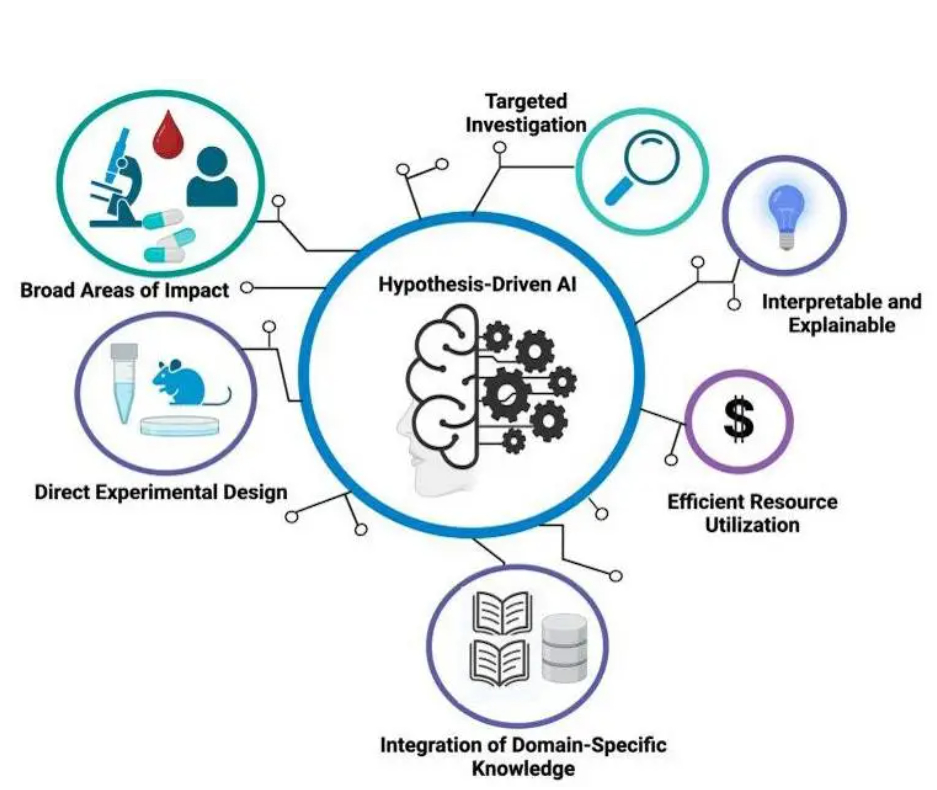Researchers at the Mayo Clinic have developed an innovative AI technology, termed “hypothesis-driven AI,” which diverges from conventional data-driven AI models.
Traditional AI methods excel at identifying patterns within vast amounts of data, such as genetic sequences or diagnostic images, but often can’t incorporate existing scientific knowledge or hypotheses directly into their learning process.
Hypothesis-driven AI challenges these norms by incorporating medical hypotheses into its learning process. It doesn’t just learn from the data it’s fed — it also uses hypotheses to explore data directly.
Documenting their research in the journal Cancers, Mayo Clinic applies their hypothesis-driven AI systems to help unravel the dynamics of complex diseases such as cancer.
Writing in a Mayo Clinic press release, Dr. Hu Li, the study’s senior author, explained how hypothesis-driven AI benefits medical research: “This fosters a new era in designing targeted and informed AI algorithms to solve scientific questions, better understand diseases, and guide individualized medicine.”
Here’s how it works:
- Compiling data: The team, led by Zilin Xianyu and colleagues at the Mayo Clinic, initiated their study by collecting, including genomic data (DNA), proteomic (proteins), transcriptomic (RNA messages), and epigenetic (heritable changes not affecting the DNA sequence information from thousands of cancer samples.
- Developing the AI system: Building on the collected data, the researchers designed a novel class of AI algorithms known as “hypothesis-driven AI.” Unlike traditional models, these algorithms were uniquely constructed to integrate and test scientific hypotheses within their learning process.
- Application to oncology research: With the algorithms ready, the researchers applied their hypothesis-driven AI across several key areas of oncology research, such as tumor classification, patient stratification, and drug response prediction, reporting improved performance over conventional methods.

Daniel Billadeau, Ph.D., a co-inventor of the study and professor at the Mayo Clinic’s Department of Immunology, stated, “This new class of AI opens a new avenue for better understanding the interactions between cancer and the immune system and holds great promise not only to test medical hypotheses but also predict and explain how patients will respond to immunotherapies.”
Of course, there are some limitations. Dr. Li notes the challenges of creating such advanced algorithms, including the need for domain-specific research and the risk of bias.
Yet, he remains optimistic, stating, “Nonetheless, hypothesis-driven AI facilitates active interactions between human experts and AI that relieve the worries that AI will eventually eliminate some professional jobs.”
AI’s role in medical and healthcare research is forever evolving, with recent progress in new antibiotic research and synthesizing anti-aging drugs.
Mayo Clinic researchers recently used GPT-4 as a diagnostic tool for stroke patients, and last year, they assisted in developing a machine-learning model that could diagnose diabetes from voice recordings.
However, there are risks, as highlighted when 100+ researchers created guidelines for safe AI protein design to limit the potential for misuse.





